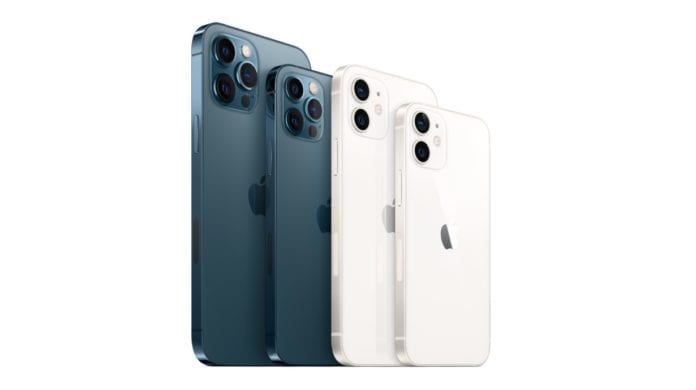Analysts are expecting a good year for the global smartphone market, after years of device upgrade stretching out further and further as users held on to their existing devices and an additional hit in 2020 due to regional lockdowns that limited people’s ability to shop in-person. The growth will be driven by 5G device upgrades overall, and user upgrades to Apple’s iPhone 12 series specifically, analysts conclude.
Strategy Analytics anticipates that global smartphone wholesale revenues will increase 13% year-over-year in 2021, the highest revenue growth in six years. “Despite the economic uncertainty and dented consumer confidence caused by the corona-virus, the market will be able to bounce back in 2021, on the back of the iPhone 12 super cycle, and the migration to 5G globally,” the analyst firm’s Linda Sui wrote in a new blog post. Sui added that overall global smartphone sales volume is expected to grow 7% year-over-year at 1.4 billion units, with the average smartphone wholesale selling price up 6% for $294. Strategy Analytics expects that the ultra-premium device segment ($600 wholesale price or higher) will be particularly strong because of iPhone 12 upgrades.
IDC said last month that it forecasts that smartphone shipments would be up 13.9% year over year in the first quarter of 2021 and 5.5% for the full year 2021. It expects that the two largest geographic markets — China and the United States — will see smartphone growth of 6.0% and 3.5%, respectively, in 2021. Again, 5G is the driving factor: IDC expects 5G smartphone shipments to account for more than 40% of global volume in 2021, and for that figure to grow to 69% in 2025.
Meanwhile, Gartner said in February that in a 2021 recovery, smartphone sales should rebound to around 2019 levels. It anticipates sales of around 1.5 billion smartphone units, or 11.4% growth from 2020 levels. “The combination of delayed smartphone replacements and the availability of lower end 5G smartphones are poised to increase smartphone sales in 2021,” said Anshul Gupta, senior research director at Gartner.
“5G is now a standard feature in premium smartphones, especially in the U.S., China, Japan and South Korea,” Gupta added. “Driven by lower-cost models, adoption is particularly aggressive in China, where 5G smartphone share is on pace to reach 59.5% in 2021. In addition, lower end 5G smartphones, which are becoming more prevalent outside China, are poised to drive more momentum for 5G smartphones in 2021 across all regions.”
The exit of LG from the smartphone market amid a phone-buying surge gives another dimension to the competitive landscape for smartphones over the coming year. In the U.S., for example, LG had about 9% of the market, which is dominated by Apple and Samsung. On a global basis, Samsung Apple and Huawei are the top three smartphone OEMs, according to IDC.
There’s also a shift going on in 5G pricing that could drive uptake on a global basis. A recent report from Tariff Consultancy found that while the majority of MNOs use 5G as a premium product, some network operators are now introducing smaller bundles of 5G mobile data allowances — some as low as 1 GB — as an entry-level product. While 5G access is typically integrated with existing 4G plans as a premium plan, the firm noted, the number and type of 5G plans are diversifying: 5G may be available as an add-on service, and some network operators such as Germany’s O2 Telefonica experimenting with a lower-price-point 5G plan.
5G device availability continues to grow rapidly. The GSA reported earlier this month that there are now 431 commercially available 5G devices, up more than 28% compared to the last quarter. More than 350 of those are phones. And there are still more to come: The number of announced 5G devices from manufacturers around the globe now exceeds 700 — that’s more than 25% higher than at the end of 2020 and up nearly 12% in one month. (Devices that are already commercially available devices account for more than 60% of all announced devices.)

